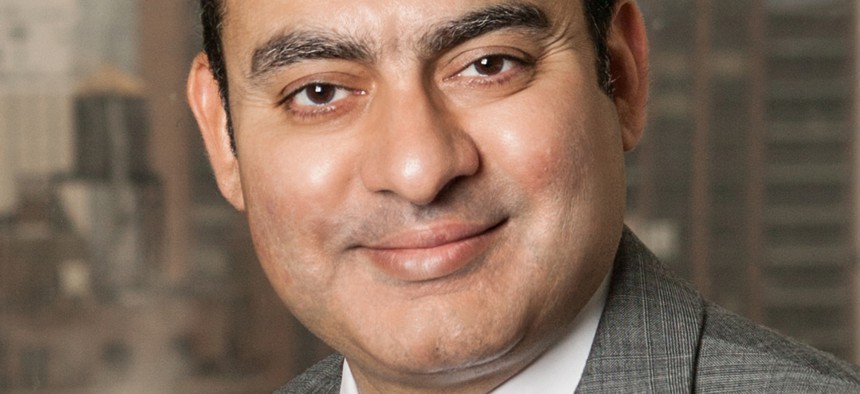Opinion: Philanthropy is stepping up its game to support youth mental health – but we must do more
It shouldn’t take a life-altering experience like COVID-19 to kick into action

The New York Community Trust
For those of us who have been pushing philanthropy and government to place a greater emphasis on youth mental health, the past two years have been both encouraging and maddening.
They’ve been encouraging at least because COVID-19 has opened our eyes to the need and has prompted foundations and government agencies to provide funding to help support urgent youth mental-health needs.
The maddening part is that it took a life-altering pandemic to prompt us to act.
And, as the immediate concerns of the pandemic begin to fade, we face the real possibility that many funders that have rallied to address this issue will lose interest and direct their resources and attention elsewhere.
During Mental Health Awareness Month, we must resolve not to let that happen. Instead, it’s an opportunity to use the lessons learned during the darkest days of the COVID-19 pandemic as the impetus for a sustained and coordinated campaign to address youth mental health.
Young people in New York City were struggling with mental health before the COVID-19 pandemic.
Then, disruptions to their home and school routines, loss of parents and loved ones, and other pandemic-created trauma made conditions worse.
In 2021, the Center for New York City Affairs reported at least one in five children between the ages of 2 and 17 has one or more emotional, behavioral, or developmental conditions. Anxiety remains one of the most common behavioral health challenges among children, and suicide is now the second leading cause of death for teenagers ages 15 to 19.
Stigma, a lack of information about available treatment options, and years of inadequate investment in the community, are just a few of the issues that contribute to a lack of available and affordable mental health treatment for young people in New York City.
And while the situation is bad for all young people—with long waiting lists even for those who can pay out of pocket – access to mental health care is particularly challenging for some groups.
Low-income families have few options of providers that accept Medicaid or even private insurance. Black and Latinx communities also face inadequate health insurance, as well as racial bias, discrimination in treatment settings, and a lack of culturally competent providers.
Almost one-half of youth who identify as lesbian, gay, transgender, or questioning reported that they seriously contemplated suicide last year and were unable to receive treatment on demand.
New York is working to undo decades of underinvestment in mental health services.
The city is hiring hundreds of new social workers with a goal of placing at least one full-time social worker in every public school. The current state budget includes resources to increase reimbursement rates for community mental health care; address staffing shortages at state-run psychiatric hospitals; and expand crisis intervention teams.
Philanthropy is also ramping up its investments in youth mental health.
The New York Community Trust, for example, is working to help nonprofits to expand and strengthen mental health treatment for vulnerable young people, especially for LGBTQ young people and youth living in communities of color.Over time, these government and philanthropic investments will expand and improve mental health care for thousands of young people in New York City.
But we cannot stop there.
Now is the time to stand together and increase our investments so we can finally meet the demand for mental health care in locations such as schools and youth programs.
Philanthropy and government have an opportunity to join forces to make meaningful structural changes that will help millions of Americans who are not receiving the treatment they need to lead healthy, productive lives.
